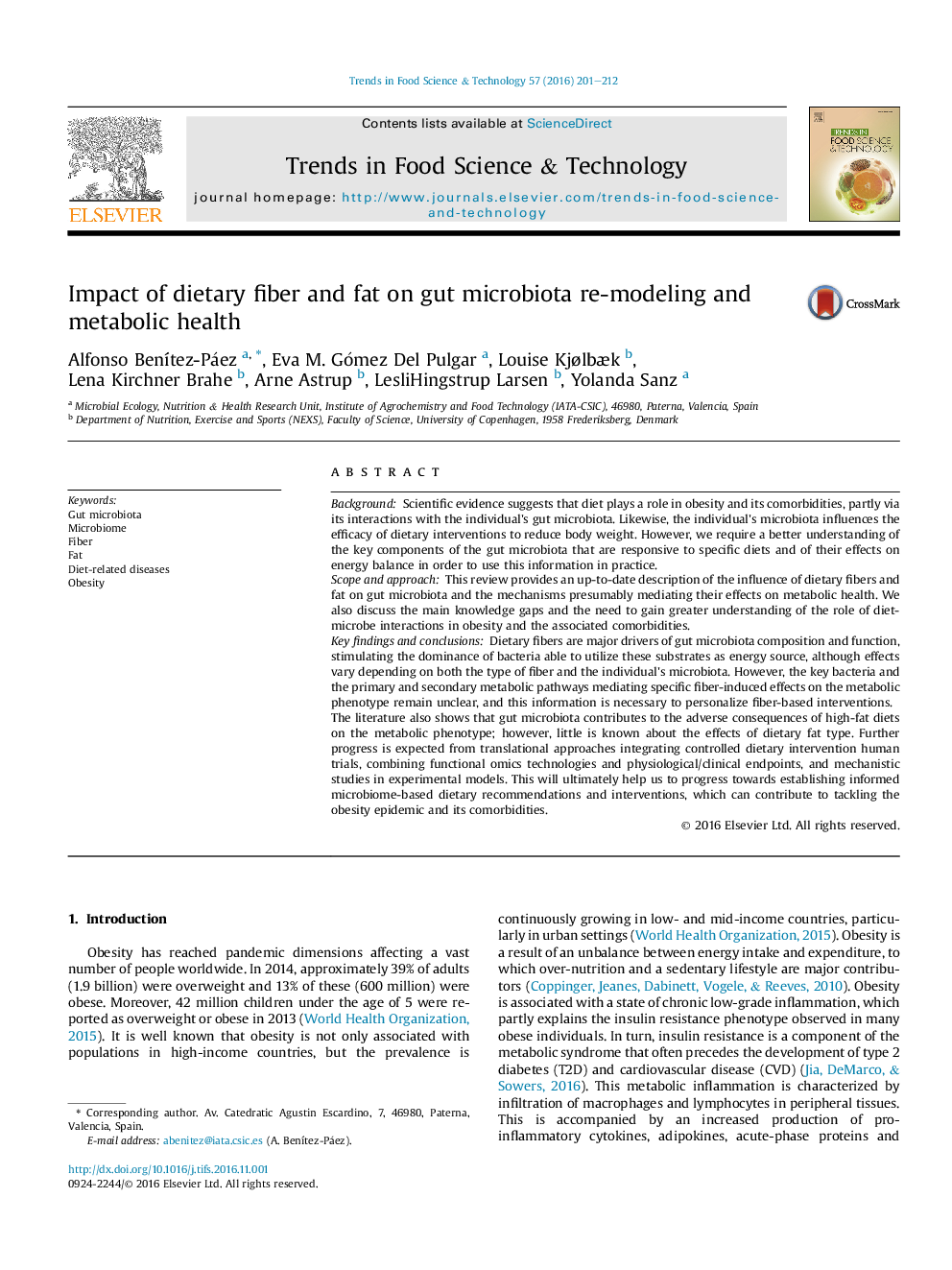| Article ID | Journal | Published Year | Pages | File Type |
|---|---|---|---|---|
| 5523823 | Trends in Food Science & Technology | 2016 | 12 Pages |
â¢Fiber is the main dietary component used to remodel gut microbiota composition.â¢Fiber amplify beneficial effects of healthy diets on body weight and metabolism.â¢Efforts are needed to identify functional synergy among certain bacterial species and fibers.â¢Adverse consequences of high-fat diets are aggravated by gut microbiota.â¢Effects of dietary fat on gut microbiota and metabolism are not fully understood.
BackgroundScientific evidence suggests that diet plays a role in obesity and its comorbidities, partly via its interactions with the individual's gut microbiota. Likewise, the individual's microbiota influences the efficacy of dietary interventions to reduce body weight. However, we require a better understanding of the key components of the gut microbiota that are responsive to specific diets and of their effects on energy balance in order to use this information in practice.Scope and approachThis review provides an up-to-date description of the influence of dietary fibers and fat on gut microbiota and the mechanisms presumably mediating their effects on metabolic health. We also discuss the main knowledge gaps and the need to gain greater understanding of the role of diet-microbe interactions in obesity and the associated comorbidities.Key findings and conclusionsDietary fibers are major drivers of gut microbiota composition and function, stimulating the dominance of bacteria able to utilize these substrates as energy source, although effects vary depending on both the type of fiber and the individual's microbiota. However, the key bacteria and the primary and secondary metabolic pathways mediating specific fiber-induced effects on the metabolic phenotype remain unclear, and this information is necessary to personalize fiber-based interventions.The literature also shows that gut microbiota contributes to the adverse consequences of high-fat diets on the metabolic phenotype; however, little is known about the effects of dietary fat type. Further progress is expected from translational approaches integrating controlled dietary intervention human trials, combining functional omics technologies and physiological/clinical endpoints, and mechanistic studies in experimental models. This will ultimately help us to progress towards establishing informed microbiome-based dietary recommendations and interventions, which can contribute to tackling the obesity epidemic and its comorbidities.
